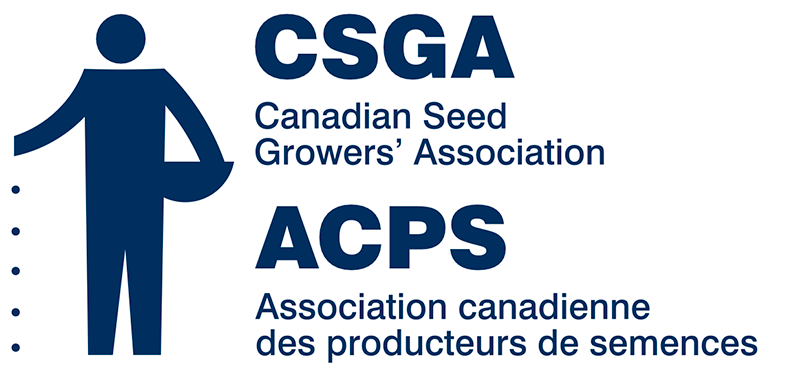Plot Production
In certified seed crop production, plot production is normally the first multiplication of Breeder seed for most annual crop kinds. Breeder seed is carefully multiplied by CSGA-accredited Plot Growers to maintain varietal identify and purity in order to have enough Select parent seed to produce sufficient quantities of Foundation, Registered and Certified seed of the variety. Any seed grower is eligible to produce Foundation, Registered and Certified status seed crops.
How to Become an Accredited Plot Grower
Plot production is restricted to CSGA-Accredited Plot Growers. An individual seed grower wishing to produce plots obtains accreditation from the CSGA through the successful production of probation plots and voluntary completion of e-learning modules.
Through SeedCert, an Application to Commence Probation Plot Production (Form 154) must be submitted to the CSGA prior to March 31st for spring-seeded crops and July 31st for fall-seeded crops.
Please see our CSGA Designations webpage for full accreditation requirements.
Requirements for Plot Production
There are certain “general” requirements that are applicable to all plot production with respect to things like the parent seed source and the area of the plot. However, these requirements do vary depending on whether the grower has already been accredited to produce plots or is still on probation. Probationary growers use the requirements for probation plot production until they receive their accreditation.
“Crop specific” requirements for things like previous land use and maximum impurity standards vary by crop kind but are the same regardless of the accreditation of the grower. Crop specific requirements can be found by typing the crop kind and the word “plot” in the search tool on the Requirements page (Circular 6) of the CSGA website.
Plot Production Post-Harvest and Variety Verification
Variety Verification Seed Samples
Variety verification relates to confirming the varietal identity and purity for the variety the grower intended to produce. Seed samples from plots must be submitted to the Canadian Food Inspection Agency (CFIA). This support document provides instructions to plot growers on how to send variety verification seed samples to the CFIA.
Select Seed Tags
Select seed must be labelled with Select tags provided by the CSGA if the seed is transferred or sold to another party. CFIA tags and certificates must not be used.
If you have any questions about labelling Select seed, please contact the Certification team via email or call (613) 236-0497 ext. 8806. If you wish to order Select seed tags, please contact Client Support via email or call (613) 236-0497 ext. 8803.
Rogues and Roguing
A rogue is any undesirable plant in a seed crop. Growers are responsible for keeping variants below the allowable limit as described in the variety description and off-types/other varieties below the maximum impurity standard. For some crop kinds there is also a standard for the maximum number of plants of other kinds. This is usually where the seeds of one crop kind are considered difficult-to-separate from the seeds of the inspected crop during seed conditioning or cleaning.
CSGA Learn is Canada’s first online seed learning program offering one-of-a-kind education resources for seed growers and seed sector organizations. Our various courses and programs help you learn more about Certified seed production, regulations, and best management practices to support your success and help you achieve recognition in the seed sector. Course 5: Pre-Inspection and Roguing 101 provides you with important information about pre-inspection and roguing a field. It also includes detailed roguing information and images by crop kind, including:
- Cereals (Wheat, Oats, Barley, Rye, Triticale)
- Legumes (Soybeans, Peas, Lentils)
- Forages
- Alfalfa
- Ryegrass
- Canola and Mustards
- Hemp







